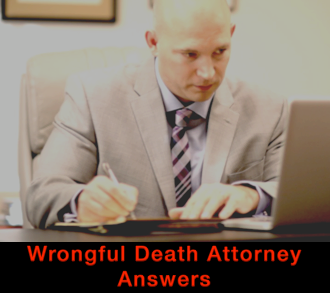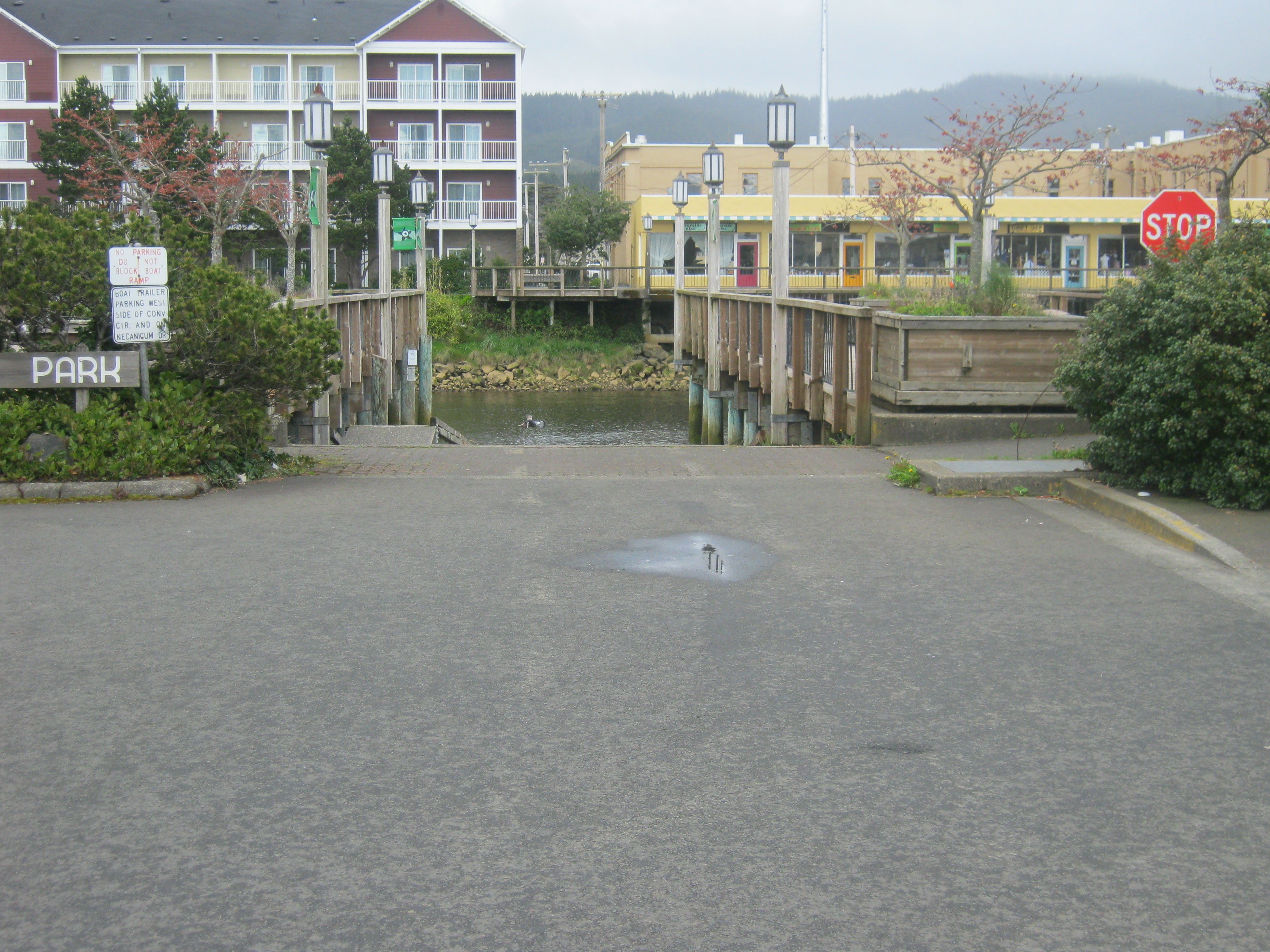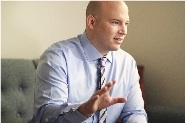Attorney Answers: Top 8 questions regarding a wrongful death lawsuit
Wrongful Death Lawsuit Answers
An Interview With Portland Accident Attorney, Travis Mayor
 The Portland wrongful death cases below are real and demonstrate how quickly lives are lost and families are changed forever. A wrongful death lawsuit can be filed if someone’s death is thought to be the fault of another person, business, or public organization, either intentionally or because of negligence. It is often hard for families to deal with the emotional trauma while trying to be practical at the same time (i.e looking for a lawyer, handling finances). My goal is to help answer some common questions for those dealing with a tragic death and demonstrate ways in which lawyers can alleviate some of the burdens during a time of grief.
The Portland wrongful death cases below are real and demonstrate how quickly lives are lost and families are changed forever. A wrongful death lawsuit can be filed if someone’s death is thought to be the fault of another person, business, or public organization, either intentionally or because of negligence. It is often hard for families to deal with the emotional trauma while trying to be practical at the same time (i.e looking for a lawyer, handling finances). My goal is to help answer some common questions for those dealing with a tragic death and demonstrate ways in which lawyers can alleviate some of the burdens during a time of grief.
Real-Life Cases
– A young girl was crossing the street on her bicycle, in a designated crosswalk, when the driver of a truck who was driving too fast and not paying attention struck her. She died a few weeks later in the hospital as a result of her crash-related injuries. Survived by her grandparents, who were her legal guardians.
– The driver of a car entered an intersection in SE Portland without stopping at the stop sign. His vehicle was t-boned by a truck on the driver’s side back seat door. The passenger who was sitting there died upon impact. Survived by his wife and parents.
– A pedestrian was hit and killed by a drunk driver who fled the scene of the collision. The driver had been drinking in a bar just prior to the fatal crash and had been served alcohol while he was visibly intoxicated. Survived by her parents and grandparents.
Question #1: Pursuing an Oregon wrongful death lawsuit won’t bring the person back, so why do it?
Attorney Travis Mayor: There are 3 main reasons people typically pursue a wrongful death claim. The first reason has to do with responsibility. This comes from more of an emotional desire to hold the person or business (entity) responsible for the death of a loved one. Establishing and proving fault is very important for most people who have suffered such a tragic loss.
The second and most practical reason for pursuing a wrongful death claim is for financial compensation. The death of a spouse or family member can have a dramatic financial impact on the surviving family members. For instance, after a spouse and parent dies, it is up to the surviving spouse to do 100% of the work, bring in 100% of the income and take care of the children solely by himself or herself. The family has forever lost the contributions of the dead loved one, financial, emotional and otherwise.

Wrongful death lawsuit in Seaside, OR
The third reason for pursuing a wrongful death claim has to do with public safety and bringing public attention to what happened so the same thing does not happen to another person. This could be shining a light on reoccurring safety violations or on ongoing bad conduct. A great example of this would be the wrongful death drowning suit I settled against the City of Seaside after a couple drowned by mistakenly driving their car into the river at a boat ramp. The lawsuit alleged the couple died due to the negligence of the City for failing to install a barrier to traffic, visible warning signs and adequate lighting in the area. This was not the first time a driver had accidentally driven into the river at that boat ramp. As a result, safety improvements have been made, as well as the installation of a barrier at the entrance to the boat ramp so that drivers cannot accidentally drive into the river.
The family took solace in knowing that their efforts may prevent a future accident. It helped them find a sliver of peace during an extremely difficult time.
Question #2: How Many Family Members Can Recover Money in An Oregon Wrongful Death Case?
Attorney Travis Mayor: Oregon Statutes dictate who may recover money in wrongful death lawsuit. Oregon law limits financial recovery to the following individuals:
- surviving spouse of the decedent,
- surviving children of the decedent,
- surviving parents of the decedent, and
- surviving stepparents/ stepchildren, if the stepparent-stepchild relationship was created when the stepchild was a minor.
If none of the above applies, the wrongful death beneficiaries are established pursuant to the Oregon Statutes regarding intestate succession, which are the laws regarding who inherits when someone dies without a will.
Question #3: When Should I Get A Wrongful Death Lawyer Involved?
Attorney Travis Mayor: In the aftermath of a fatal accident, families are in shock and not sure where to turn and what steps to take next. The earlier you get a lawyer on board, the earlier he/ she can begin taking some of the responsibilities off your hands. An experienced wrongful death attorney will have done this many times before and will be able to provide practical step-by-step guidance. For instance, the first step is applying to the local probate court to be the personal representative of the decedent’s estate. Only one person can act on behalf of the estate. This person will have the authority to initiate and settle lawsuits and claims. This prospective personal representative is typically the next of kin – a family member who may also be a beneficiary of the wrongful death lawsuit, but not necessarily. I have handled many wrongful death cases with various family dynamics and situations. However, the personal representative of the estate must be appointed by the probate court in either the county where the decedent lived prior to their death or the county where the decedent died. A lawyer can help initiate and navigate this process.
From there, the personal injury lawyer initiates an in-depth investigation into the circumstances of what happened, why, who was involved, if there were safety violations, etc… The personal injury lawyer also gathers as much information as possible about the person who died, such as their biography, their accomplishments in life, family photos and videos, and other things to document the decedent’s life and relationships. As a personal injury attorney, I have to know the person’s accomplishments, the people who loved them, their history of earnings – essentially the full picture of the person’s life. All of this is extremely important in proving damages, which are the losses to the decedent’s estate.
Question #4: How Much and What Types of Compensation Can I Seek?
Attorney Travis Mayor: This is the most common question I receive by far. Families want to know how much money or what types of compensation they can seek in a wrongful death lawsuit? What can the estate be compensated for? Answers to these questions help families decide if this is something they want to pursue.
The short answer is the estate can seek economic damages (the number or value can easily be assigned like a medical bill or lost wages), and non-economic damages (subjective damages such as the loss of companionship, pain and suffering). Damages is a legal word for compensation. Unfortunately, non-economic damages are capped at $500,000 by Oregon law.
The longer answer requires a bit more detail. First, let’s consider economic damages. The estate has the burden of proving the economic damages suffered by the estate as a result of the wrongful death. When evaluating the estate’s economic damages, the insurance company for the responsible person, the jury or a judge will look at the expenses that were incurred by the decedent how much money the decedent’s estate lost as a result of the wrongful death. If proved, economic damages may be given for:
- Reasonable and necessary medical expenses that were incurred in treating the decedent for the injuries that eventually caused the death;
- Funeral, burial expenses, and memorial expenses;
- Loss of income to the estate – the loss of the income the decedent would have likely made over the course of his or her remaining working life;
- Loss of inheritance;
- Financial losses of the estate’s beneficiaries as a result of decedent’s death;
One of the biggest economic damages categories can be the loss of income to the decedent’s estate. For example, let’s say a 40-year-old husband and father of two children was killed by another person’s negligence in a car crash. Let’s assume he made 100K per year and would have worked for another 25-30 years before he retired. Because of his wrongful death, his estate just lost 25-30 years of income he would have made. Now if you subtract out living expenses, but also factor in incremental pay increases he likely would have earned, the amount of money his estate just lost is SIGNIFICANT. Oftentimes loss of earnings can be the largest component of damages in a wrongful death case. To determine this amount, we use expert witnesses such as economists and CPAs.
Other Financial Losses
Other financial losses would include any other types of economic losses that can be proven. For example, in a recent wrongful death case, I represented the estate of a deceased man who was divorced and paying monthly child support to his young daughter who was the only beneficiary of his estate. Due to his death, his daughter and beneficiary would lose 12 years of finical support from her father until she turned 18 years of age. We were able to recover 100% of the lost child support payments through the wrongful death case.
Another example is the loss of inheritance. I represented the family of a middle-aged gentleman in a wrongful death claim. His mother was elderly, and in her Last Will and Testament had given half of her sizeable estate to each of her sons. When her son died, his mother changed her Will to give 100% of her estate to her surviving son. We were able to prove that the decedent’s estate lost close to a 7-figure inheritance because of the wrongful death.
Non-economic damages – These are the subjective damages for surviving families emotional loss and pain for losing a loved one. Unlike economic, or specific damages, non-economic damages compensate for losses which are not readily quantifiable. As I mentioned before, non-economic damages are capped at $500,000 by Oregon law. This cap was enacted in 1987 and has not been raised in nearly 30 years – even for inflation. Non-economic damages, in my opinion, exceed the cap in nearly every wrongful death case where the decedent and the beneficiaries had a loving relationship.

A drunk driver who hits and kills someone is a good example of a wrongful death case where punitive damages may be awarded.
Since punitive damages are not designed to compensate the estate, 70% of a punitive damage award goes to the State of Oregon crimes victims’ fund. The estate gets to keep 30% of the award for bringing the claim. Despite this allocation, many cases warrant punitive damages. There can be strategic reasons for pursuing punitive damages as well as societal and emotional reasons. Whether or not to pursue punitive damages is decided on a case-by-case basis, of course depending on the particular facts.
Question #5: How long will an Oregon wrongful death lawsuit take?
Attorney Travis Mayor: The length of a wrongful death case depends on many factors. Court involvement is always necessary because a probate judge must appoint a personal representative for the estate. Also, any settlement must also be approved by the probate judge. However, I have had wrongful death claims where liability was easily established as well as the damages suffered by the estate. Because the facts were not complicated and the at-fault person had a sizeable insurance policy we were able to settle without a lawsuit and obtain probate court approval in just a few months.
On the other hand, I have been involved in wrongful death cases where liability for the incident that caused the death and/or the amount of damages (money) sought by the estate were disputed. These cases required appointing a personal representative for the estate, investigating the circumstances, gathering, evaluating and determining the estate’s damages, filing a wrongful death lawsuit and litigating the case in court. With a three-year statute of limitations before the estate is required to file a wrongful death lawsuit, some cases can take a few years to get resolved.
These examples are the two extremes. Many wrongful death cases are concluded at different time periods between these two outliers. Wrongful death cases have so many contributing factors that will influence how long they will take to conclude such as the identity and location of potential defendants, potential insurance companies that might provide coverage for the incident, the amount of insurance coverage, whether liability is admitted or disputed, whether a lawsuit is filed or the case is settled out of court, who defends the case, the jurisdiction (urban vs. rural) where the case arises, the number of claims and much more.
Question #6: How are wrongful death cases concluded?
Attorney Travis Mayor: Wrongful death cases are concluded either by a settlement or by a jury’s verdict after a trial. Most cases are resolved by settlement. The only person who has the authority to settle a wrongful death case on behalf of the estate is the court-appointed personal representative. A typical wrongful death case is concluded by an out of court settlement reached between the personal representative of the estate and the wrongdoer’s insurance company. Sometimes the settlement is reached after a wrongful death lawsuit has been filed, but before the case goes to trial. In each circumstance, the probate judge must approve the settlement before it is official. This is done by petitioning the probate court to approve the settlement and providing enough factual details to convince the probate judge that the settlement is in the best interests of the estate and its beneficiaries.
If liability and/or damages are highly contested, and settlement cannot be reached, then the case will likely go to a jury trial. At the conclusion of the presentation of evidence and closing arguments, the judge will instruct the jury on the applicable law and the jurors will begin deliberations. They will usually be asked to determine who is at fault and the amount of damages the estate has proven it has suffered. Once the jury has reached a verdict, the case will typically be concluded based on that verdict. In some cases, post-trial legal motions or appeals can further delay the proceedings. However, those instances are rare.
Question #7: If there is more than one beneficiary of the estate, how is the money divided?
Attorney Travis Mayor: Sometimes there will be two or more beneficiaries to an estate when damages are recovered by either settlement or at after a jury trial. The beneficiaries can divide the proceeds based on mutual agreement. The division can be done equally or not, as long as each beneficiary agrees. In cases of agreement, the beneficiaries must each sign documents that are submitted to the probate court acknowledging the agreement. Once the probate court approves the agreement the funds can be distributed pursuant to that agreement. This is the best case scenario and will result in a faster distribution of funds and conclusion of the case.
However, not every case is wrapped up so easily. There are times when the beneficiaries of a wrongful death settlement or verdict do not agree on the division of the proceeds. Family history and dynamics often play a role in these disagreements. When the beneficiaries cannot agree, the court decides who gets what after an evidentiary hearing. Pursuant to Oregon law, ORS 30.040, the probate court will apportion the money based on each beneficiaries’ loss. These hearings can sometimes turn into mudslinging events where family members try to prove they were more important to the decedent than the others. In some cases, however, it is apparent that some beneficiaries are more deserving than others. For example, consider the death of a child where the beneficiaries are the surviving parents, but one parent was not present or actively involved in the child’s life. A probate court would likely award most, if not all, of the proceeds to the surviving parent who was raising the child. Or in the case of a deceased parent, a probate court would likely apportion more of the proceeds to the surviving spouse and children than the adult parents of the decedent. Like everything in the law, each case turns on the particular facts and circumstances involved.
Question #8: What are hidden responsibilities I might have to deal with and how can a lawyer alleviate these?
Attorney Travis Mayor: Handling an Oregon wrongful death lawsuit is difficult. Wrongful death claims often involve two legal actions – the probate court matter necessary for all Oregon wrongful death cases and the civil litigation between the estate and the alleged wrongdoer who caused the decedent’s death. Thus, Oregon wrongful death claims require someone who knows the relevant law, who knows how to prove liability and damages and who knows the many nuances involved.
An Oregon wrongful death attorney will help the family who has lost someone navigate all of these areas. More importantly, an experienced Oregon wrongful death lawyer knows the strategies that can produce good results for the beneficiaries and maximize the amount of the wrongful death settlement or verdict. It is also imperative that the lawyer has the financial resources to properly investigate the claim, hire the necessary expert witnesses to prove liability and damages, and take the case to trial if necessary. These cases are not cheap and can be very expensive to pursue, especially when there are hundreds of thousands or even millions of dollars at stake.
Wrongful Death Lawsuit Attorney

If you or someone you know has been injured as a result of another person’s conduct, and you are looking for a skilled attorney to lead you through the insurance roadblocks, please call today for a free and confidential case evaluation. Local (503) 610-0005 Toll-free 1-800-949-1481 or email travis@mayorlaw.com.
For additional information about personal injury cases, insurance, and maximizing your financial recovery, I recommend the following articles on my Blog:
Travis Mayor Named Rising Star by Oregon Super Lawyers
8 Mistakes Insurance Companies Are Hoping You Make!
Oregon Car Accident Guide: Protect Your Rights and Maximize Your Financial Recovery
Oregon Car Insurance and Personal Injury Claims FAQs

